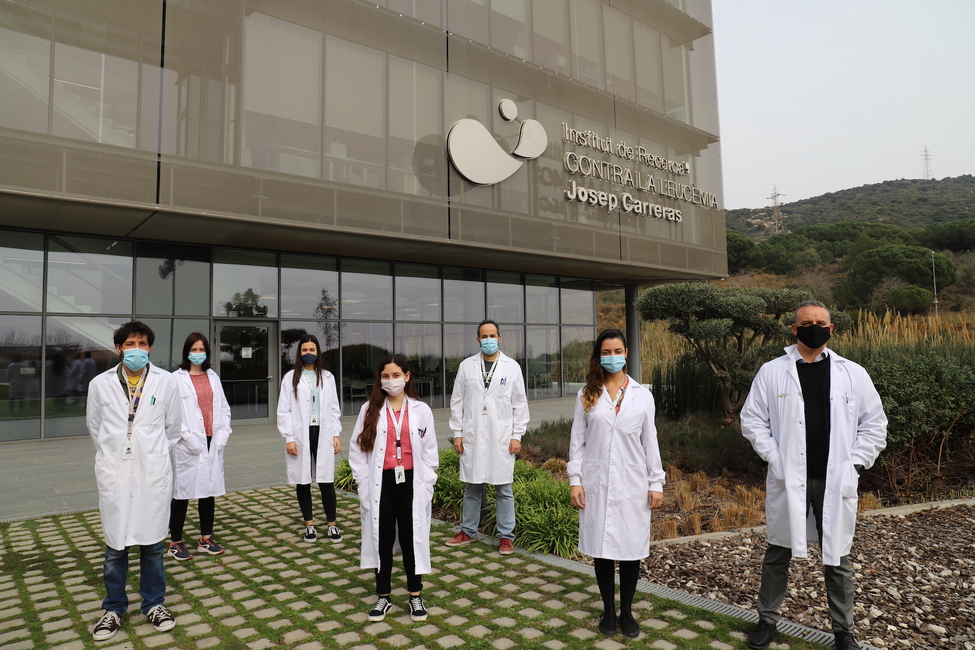Phosphoproteomics is a powerful tool to tell sensitivity to BTK inhibitors in non-Hodgkin Lymphoma
Researchers at the Josep Carreras Leukaemia Research Institute have found the phosphorylation state of Ikaros protein is a strong biomarker to cluster chronic lymphocytic leukemia patients into early or late-responders to the novel BTKi TG-1701.

In a recent publication at Clinical Cancer Research, Dr. Gaël Roué and his team at the Josep Carreras Leukaemia Research Institute report that the phosphorylation state of Ikaros is a good biomarker to cluster patients treated with the novel Bruton’s tyrosine kinase inhibitor (BTKi) TG-1701 into early-responders and late-responders.
B-cell non-Hodgkin lymphomas account for up to 4% of globally diagnosed cancers. Standard treatments include the targeting of the B-cell receptor pathway using ibrutinib, an irreversible BTK inhibitor. Many proteins work only when phosphorylated, especially those responsible of cell proliferation, and tyrosine kinases are among the most active phosphorylators. Inhibiting their action, therefore, helps blocking cancer expansion.
However, off target secondary effects and the eventual acquisition of cellular resistance limits the use of irreversible kinase inhibitors in real life. TG-1701, a novel and more specific BTKi, is ongoing phase I clinical trials to check if it could be an alternative to ibrutinib, either as single agent or when used in combination therapies.
Dr. Roué’s team and collaborators characterized six clinical samples from patients in the trial using phosphoproteomics and RNA sequencing to elucidate the effects of the drug and validated TG-1701 mechanism of action with in vivo and in vitro models created ad hoc.
Results showed that the phosphorylation state of Ikaros, a nuclear gene regulator whose activity is controlled by BTK -among other proteins-, could be a good biomarker to cluster B-cell non-Hodgkin lymphoma patients into early-responders to TG-1701, those who would benefit the most of the treatment, and late-responders, not reaching the same benefit and with increased probability of relapse.
Due to the low sample number, the conclusions of the study must be taken with some precaution. Nonetheless, they can be considered good evidence to keep testing TG-1701 and its in vivo effects. The research counted with the collaboration of Dr. Hari Miskin and Emmanuel Normant (TG Therapeutics), Dr. Francesc Bosch (Hospital Universitari Vall d’Hebron, Universitat Autònoma de Barcelona), Carolina De La Torre, Pablo Menéndez and Manel Esteller (Josep Carreras Leukaemia Research Institute).
Reference article:
Antitumor Activity of the Novel BTK Inhibitor TG-1701 Is Associated with Disruption of Ikaros Signaling in Patients with B-cell Non–Hodgkin Lymphoma
Marcelo Lima Ribeiro, Diana Reyes-Garau, Meritxell Vinyoles, Núria Profitós Pelejà, Juliana Carvalho Santos, Marc Armengol, Miranda Fernández-Serrano, Alícia Sedó Mor, Joan J. Bech-Serra, Pedro Blecua, Eva Musulen, Carolina De La Torre, Hari Miskin, Manel Esteller, Francesc Bosch, Pablo Menéndez, Emmanuel Normant and Gaël Roué.
Clin Cancer Res December 1, 2021 (27) (23) 6591-6601; DOI: 10.1158/1078-0432.CCR-21-1067